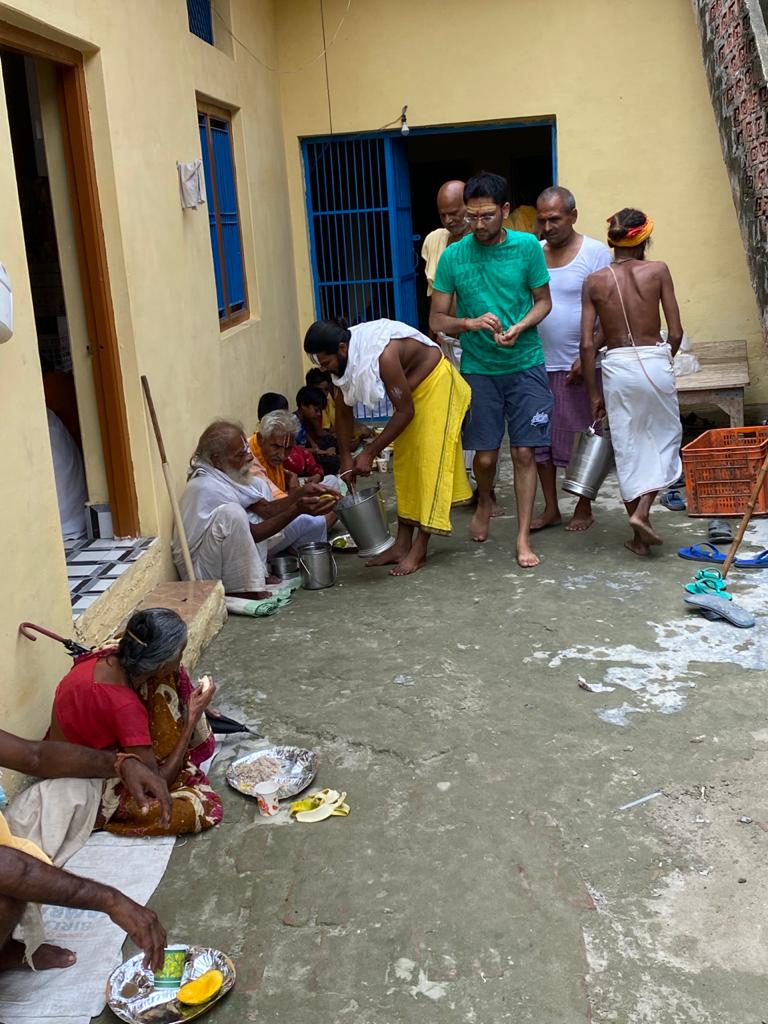

Feeding Sadhus and the Needy
- Project Name: Business Accounting
- Client: Company Name Inc.
- Project Commencement Date: January 26, 2019
- Project Completion Date: March 27, 2019
- Project url: www.example.com
Nourishing Body and Spirit Through Service
In the spiritual heartlands of India, sadhus and those in need often rely on the kindness of others for sustenance. These individuals, whether homeless saints, widowed women, underprivileged children, or the impoverished, are among the most vulnerable in society. Their lives are centered around devotion, faith, and survival. At our charity, we are committed to easing their burdens by organizing weekly food donations and bhandaras (community feasts) that provide them with nourishing meals, dignity, and a sense of belonging.
Our Weekly Seva: Offering Nourishment to Sadhus
Sadhus are spiritual ascetics who dedicate their lives to meditation, renunciation, and the pursuit of divine connection. Many of these saints live in simple conditions, choosing to abandon material wealth and comforts. In places like Vrindavan and Ayodhya, we have encountered homeless sadhus who, despite their poverty, spend their days in devotion without asking for help. Moved by their humility, we began a weekly program that offers them warm, nourishing meals.
Our food donation program is more than just an act of charity—it is a sacred service (seva) rooted in the belief that feeding those devoted to spiritual life is a way to honor their dedication and further support their path of devotion. By providing wholesome meals to these sadhus, we allow them to focus on their spiritual practices without the distraction of hunger. Your support in this mission ensures that we can continue to serve those who serve the divine.
Bhandaras: Community Feasts That Uplift All
In addition to serving sadhus, we organize regular bhandaras that bring together the poor, homeless, and marginalized. These communal feasts are held weekly and are open to anyone in need of a meal. The bhandara is a long-standing tradition in Indian culture, where food is seen not only as sustenance but also as a means of bringing people together in unity and equality.
Our bhandaras are attended by a diverse group of people, including widowed women, who are often left without support; underprivileged children, who lack the resources for daily meals; and ashram students, who devote themselves to spiritual learning while facing financial hardship. During these feasts, there is no distinction between rich or poor, young or old—everyone is welcome at the table, and everyone is treated with respect and compassion.
The Spiritual Importance of Feeding the Needy
Feeding the hungry is considered one of the most sacred and selfless acts in many spiritual traditions. In India, it is believed that offering food to those in need generates immense spiritual merit (punya), benefiting both the giver and the receiver. By providing meals to the poor and the sadhus, we fulfill a timeless duty of service that uplifts the entire community.
For the sadhus, who have renounced worldly pleasures, receiving food without asking is seen as a blessing from the divine. Similarly, for the poor and marginalized, these meals offer more than just physical sustenance—they bring a sense of dignity, hope, and connection. Our charity views this work as part of a holistic approach to serving humanity, where we address not only physical hunger but also the emotional and spiritual well-being of those we serve.
Your Role in Feeding the Hungry
Our ability to continue this vital work depends on the generosity of our donors and supporters. Every contribution, no matter how small, helps us extend our reach to more people in need. With your help, we can expand our weekly food donation programs, organize larger bhandaras, and ensure that no one goes hungry in the sacred cities of Vrindavan and Ayodhya.
When you support our Feeding Sadhus and the Needy initiative, you’re not just providing a meal—you’re participating in a cycle of compassion that nourishes both body and spirit. Your donations make a tangible difference in the lives of the most vulnerable, offering them sustenance, hope, and the knowledge that they are not forgotten.

